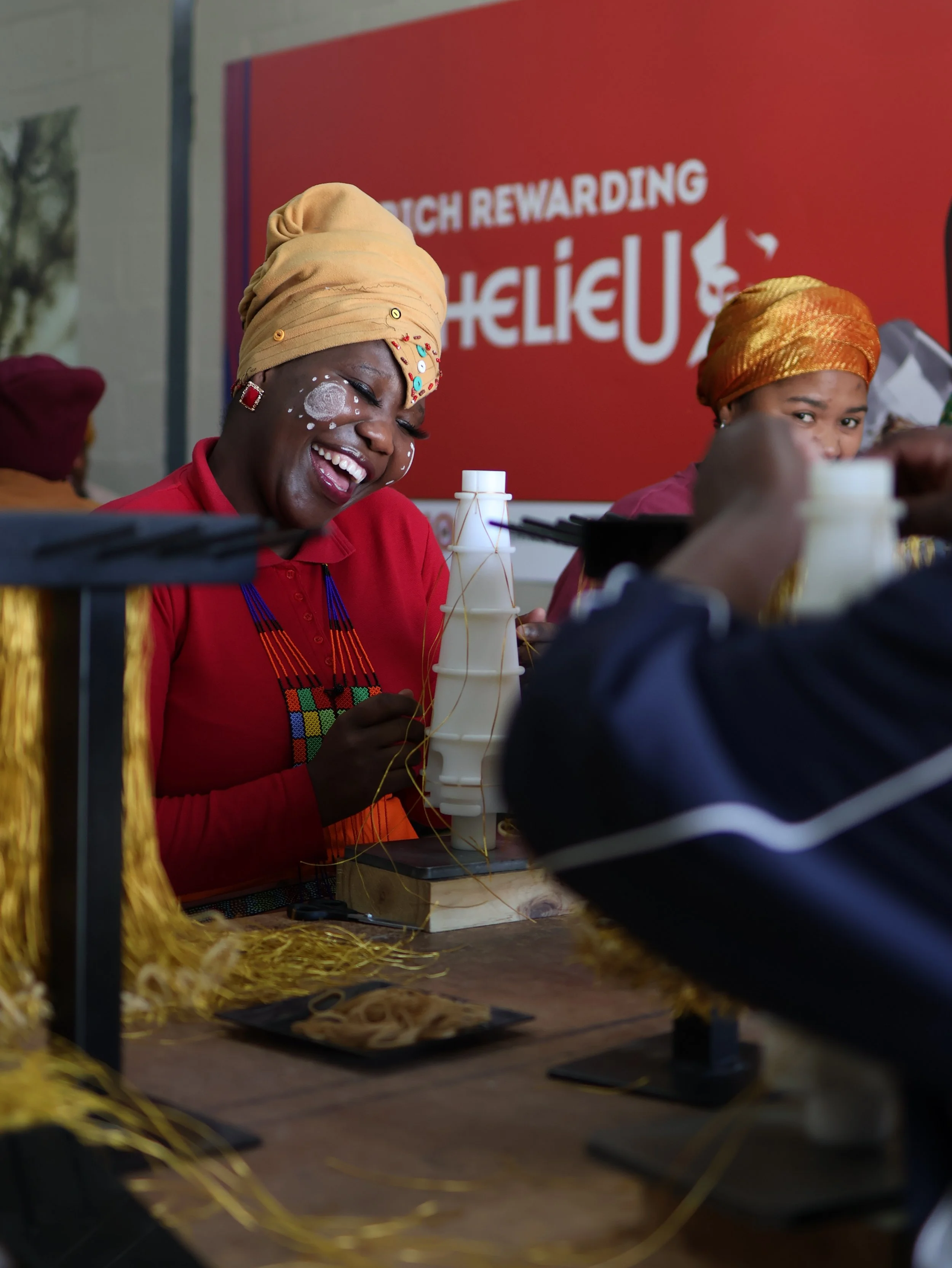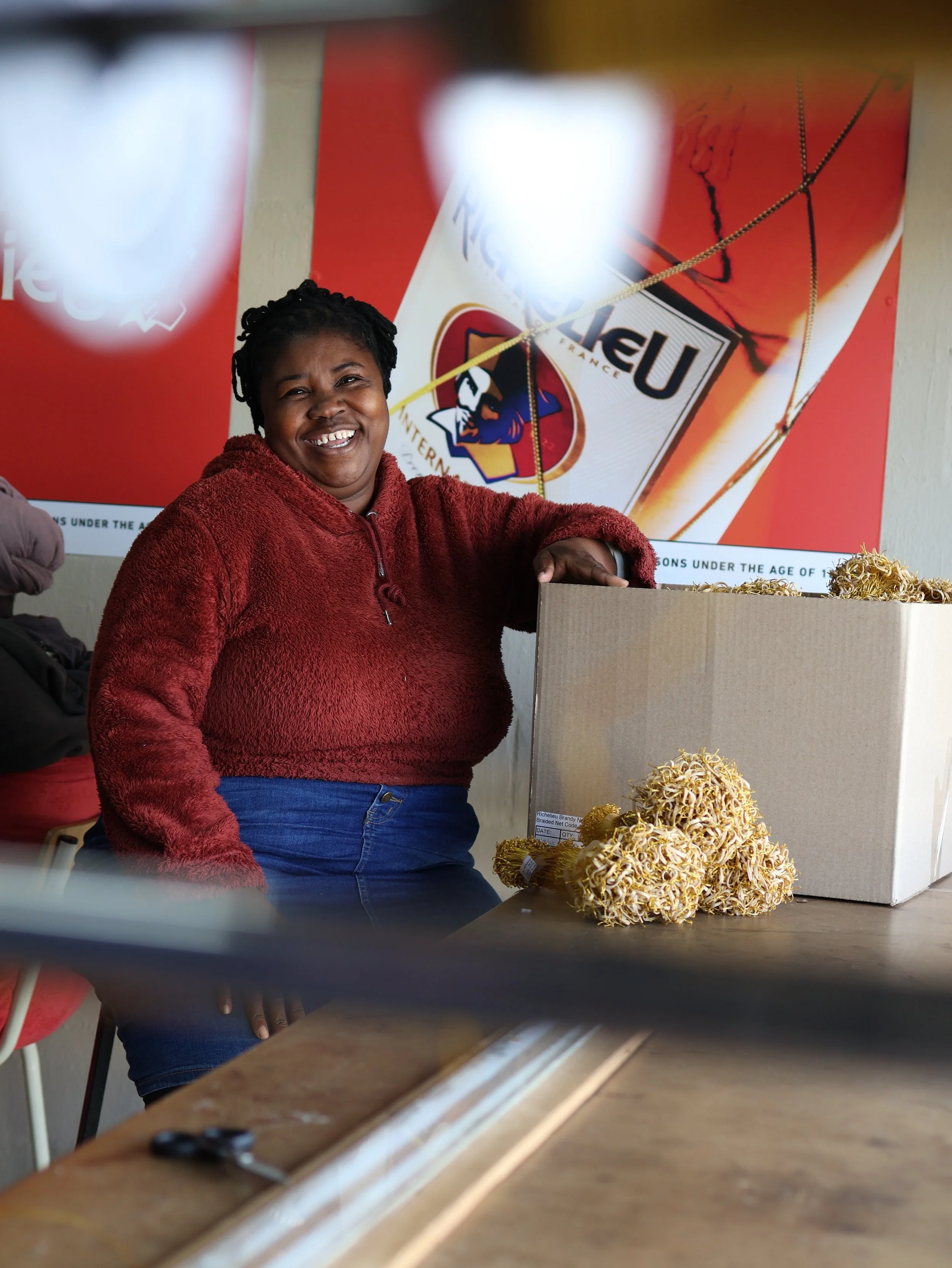
Achieving handcrafted consistency at scale meant creating the jig.
Heineken requires two suppliers for every product—it’s a smart way to manage risk. That’s why we were brought on as the secondary supplier for brandy nets. For us, it was a strategic win: it diversified our workload and kept things dynamic on the factory floor, with our team moving seamlessly between Amarula tassels and Richelieu nets based on demand.In all the years that we have been supplying Heineken (previously Distell) we have never had a quality issue.
Every member of the Richelieu team produces over 100 nets a day. Supervisor, Zodwa Matyobeni trains four women at a time, getting them production-ready in just two weeks. She believes true productivity comes from recognising each woman’s strengths and placing her where she’ll excel.
At Handwork Hub, every new employee works alongside an experienced woman to encourage skills transfer and mentoring. Zodwa also fosters relationships between generations — ensuring that while technical skills are passed on, so too is the wisdom of the older women, and the fresh perspectives of the younger ones. Both grow in the process.True productivity comes from recognising each woman’s strengths.
Zodwa Matyobeni - Supervisor for the Richelieu Net Production
This has been our most technically demanding project yet, requiring a fair bit of ingenuity. To guarantee every Richelieu net is identical, we created “The Jig” — a white, cone-shaped tool that ensures perfect replication, no matter who makes it. Each net has 28 precisely spaced knots, made from 3.6 metres of gold braid. Finding the perfect gold lurex and the right elastic for the bottle base took time, but now every net meets Richelieu's specification.All text, images, and ideas contained herein are the intellectual property of © The Handwork Hub.




